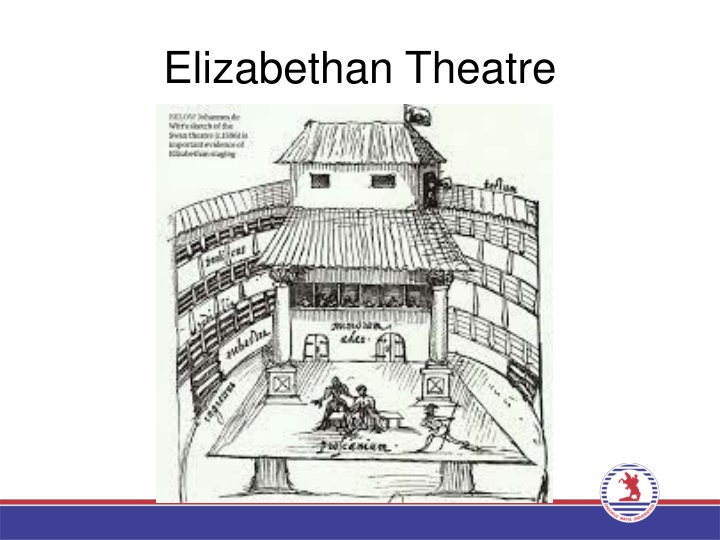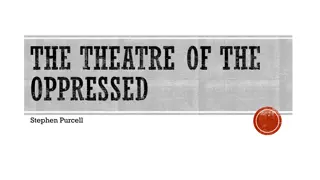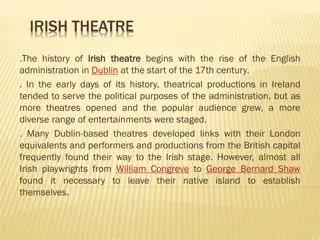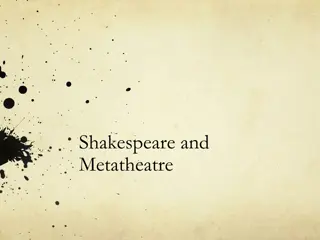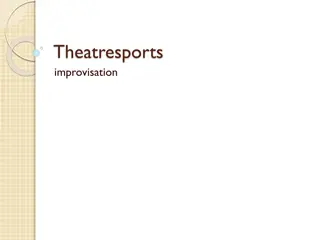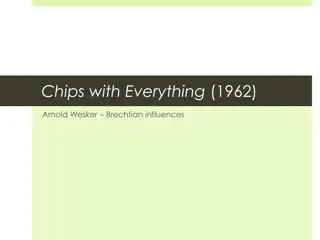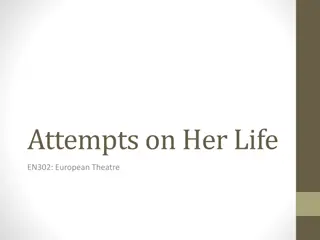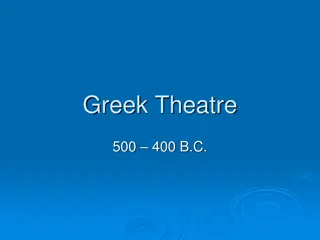Elizabethan Theatre
In the 16th century, English drama was heavily influenced by classical and Latin elements, with playwrights like Christopher Marlowe and William Shakespeare taking the stage. Tragedy in this era typically depicted a fall from grace of a prominent figure, evolving over time to include protagonists from various social classes. Tragic heroes often exhibit hamartia or tragic flaw, with themes of nemesis, peripetia, anagnorisis, and catastrophe shaping their narratives. Shakespeare's Macbeth, written in the early 17th century, draws inspiration from historical sources to deliver a timeless tale of ambition and downfall.
Download Presentation

Please find below an Image/Link to download the presentation.
The content on the website is provided AS IS for your information and personal use only. It may not be sold, licensed, or shared on other websites without obtaining consent from the author.If you encounter any issues during the download, it is possible that the publisher has removed the file from their server.
You are allowed to download the files provided on this website for personal or commercial use, subject to the condition that they are used lawfully. All files are the property of their respective owners.
The content on the website is provided AS IS for your information and personal use only. It may not be sold, licensed, or shared on other websites without obtaining consent from the author.
E N D
Presentation Transcript
In the 16th century, upon English drama classical influence, Latin influence in particular is observed. Great playwrights of this period are Christopher Marlowe and William Shakespeare
Tragedy Tragedy is a serious or sorrowful play, involving at least a conflict, with a fatal or disastrous conclusion. Conflict is the basic element of tragedy. The tragic hero is a man neither villainous nor extremely virtuous. He moves from happiness to misery through frailty or some error in judgement.
From the time of Seneca to 18th century , tragedy was about the fall of a famous man. The tragic hero was a king, an aristocrat or other person of high position. In 18th century, the tragic hero belonged to middle class. In modern tragedies, the tragic hero may be from any social class.
Tragedy Hamartia (error) : Tragic flow is used as the synonym of hamartia. An error of judgement which may arise from ignorance or some moral shortcoming. Hubris (insolence, pride). It isn t seen in English tragedies. Greek Tragic hero is proud of himself so much so that he ignores the warnings of gods and disobeys their laws.
Nemesis means punishment. Peripetia: Sudden change of fortune from prosperity to ruin. Anagnorisis: It is the moment of recognition. The tragic hero understands his faults. Catastrophe: The conclusion of tragedy
Macbeth 1- Macbeth was most likely written in late 1606 (or early 1607) in the reign of James I 2- Shakespeare s primary source for Macbeth was Raphael Holinshed s Chronicles of England, Scotland and Ireland.
